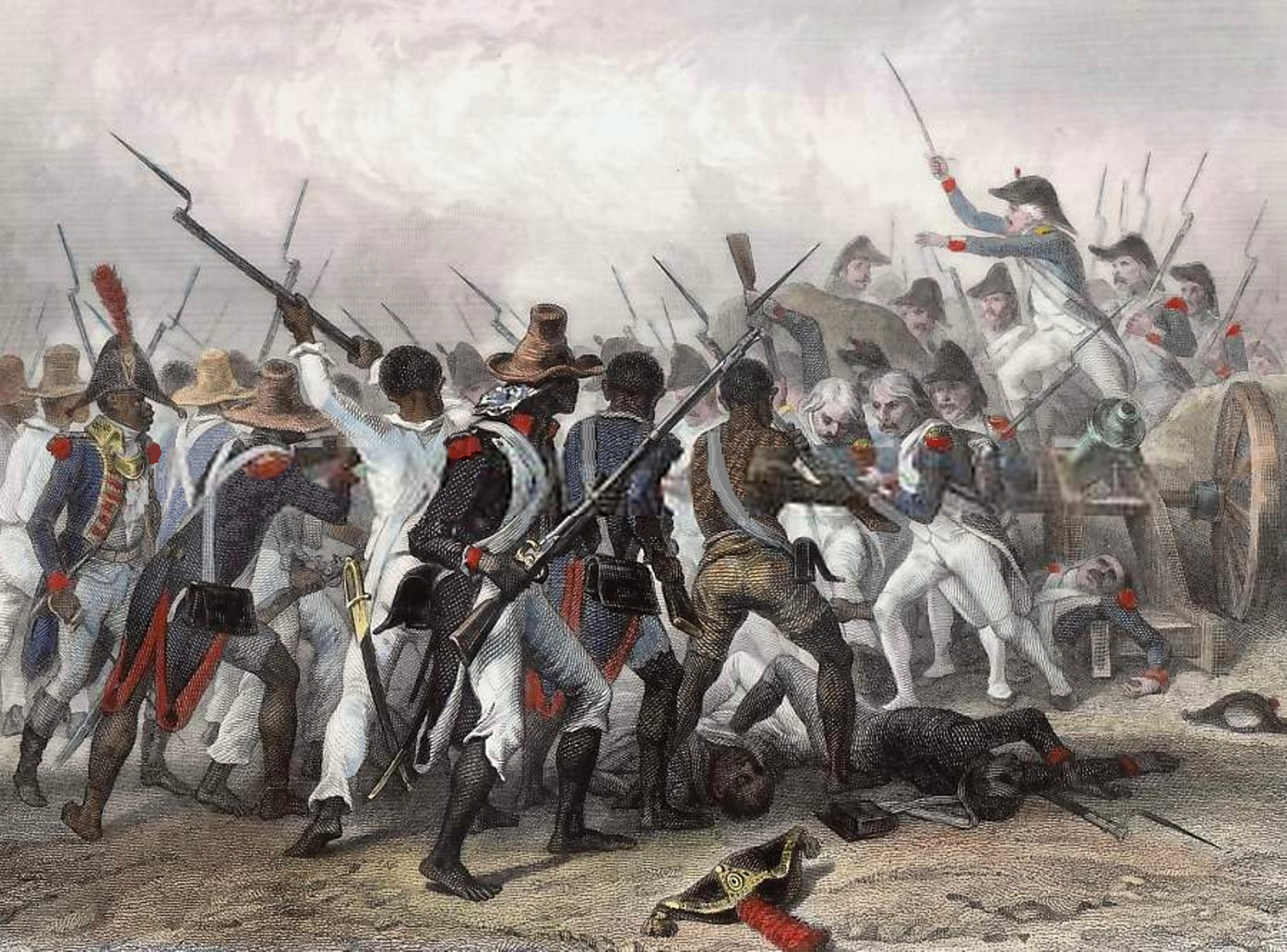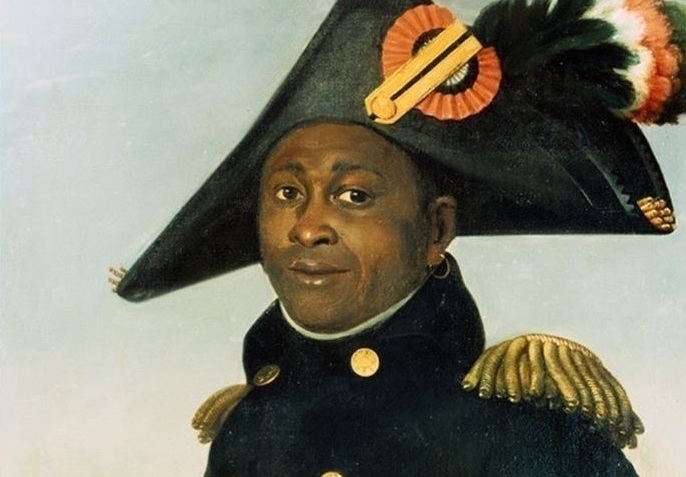Turning history on its head: The Legacy of CLR James
Posted by Pete on 4th Jan 2021
CLR James (1901-1989) was born today in 1901. His book, 'The Black Jacobins', remains one of the great monuments in the history of radical history.

From 'Histoire de Napoléon', by M. De Norvins, 1839.
Born in British-ruled Trinidad, Cyril Lionel Robert James was a man of many talents – athletic, political, and intellectual.
But perhaps the greatest achievement of CLR James was his 1938 book, 'The Black Jacobins: Toussaint L’Ouverture and the San Domingo Revolution'.
Treating the Haitian Revolution which began in 1791 and ended with the abolition of slavery on the Caribbean island and its independence from France, 'The Black Jacobins' became and remains an icon of radical history-writing.

James’s thinking about the Haitian Revolution first became public a few years earlier, in 1936, when his three-part play, 'Toussaint L’Ouverture – The story of the only successful slave revolt in history', hit the West End in London. Paul Robeson was in the cast.
James had moved to England from Trinidad a few years earlier, where he’d begun working as a cricket correspondent for the Manchester Guardian. His 1963 book on cricket, 'Beyond the Boundary', is still widely-renowned as the best book ever written about sport.
But James retained a firm interest in Caribbean politics. A committed anticolonial thinker, he wrote 'The Case for West-Indian Self Government' in 1933 (published by Virginia Woolf’s Hogarth Press in London).
From this politics, his turn to the history of the Haitian Revolution made sense. James spent time over the 1930s researching in France, where L’Ouverture – the most prominent leader of the Haitian struggle – had died in 1803.
What resulted was 'The Black Jacobins', first published in London by Secker & Warburg in 1938.

(Picture: Alexandre-François-Louis, comte de Girardin).
With the book, CLR James developed the daring claim that, far from being a sideshow, it was the Haitian Revolution of the 1790s and 1800s which truly fulfilled the radical ideals of the French Revolution.
He argued that, where the French proclaimed universal liberty while keeping black people enslaved in Haiti, it was the Haitian revolutionaries – like L’Ouverture – who made liberty universal by bringing it to all people, regardless of race.
The ideals of the French Revolution "meant more to them than to any Frenchman".
Toussaint, the ultimate Black Jacobin, was for CLR James, "the apogee of the revolutionary doctrines that underpinned the French Revolution".
What made this all the more impressive was that he had been born into slavery – a true Spartacus.
'The Black Jacobins' was so remarkable in 1938 because it went completely against convention.
Back then, the dominant version of the Haitian Revolution – first told by the contemporary supporters and allies of slavery in the Atlantic World and repeated ever since – portrayed it as an apocalyptic race war.
CLR James’s book pierced through this distorted, self-interested narrative to recognise the black Haitians as human beings with agency and rich ideas of liberty who could make history themselves.
In James’s retelling, enslaved black people were the main characters in their own liberation, just as becomes clear when we look at the stories of Harriet Tubman and Frederick Douglass in the US, or Zumbi dos Palmares in Brazil.

'The Black Jacobins' made the rules of radical history-writing which we still follow: see through the dominant narratives of our past, made by and for the powerful, and set the voiceless at the centre of the story – then see what new heroes and epics you discover!
